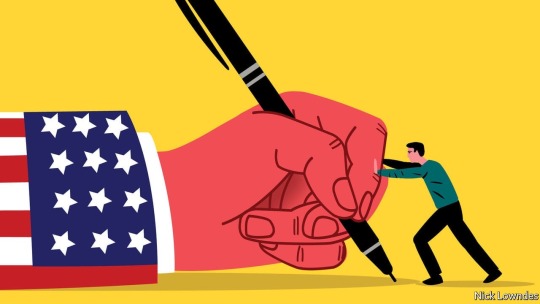#God bless America 🇺🇸
Text
goodnight I love you all! remember cops and politicians are always lying to you!!!!<33333333
2 notes
·
View notes
Text
There’s nothing more American than stone cold riding a Zamboni with miller lite ads on it to beat the shit out of his boss
13 notes
·
View notes
Text
pussy is temporary but jackin off n booze are forever
5 notes
·
View notes
Text
Heavenly Father, bless and protect Military Chaplains and fill them
with the joy and courage of their vocation as personal ministers of
Christ in preaching your word and nourishing us with the Sacraments.
Grant this through Christ our Lord. Amen.
#us military#us army#us marines#us airforce#us navy#special forces#chaplain#soldiers#god bless america#🇺🇸🇺🇸🇺🇸#army rangers
18 notes
·
View notes
Note
dads are so wild huh one moment you can be their little buddy their partner in crime and the next they hate you and everything you’ve ever done or said or wanted make it make sense it’s a very strange phenomenon that should be studied.
my dad has seriously been on my fucking ass for the past two weeks berating me and insulting me and idk what the fuck I did for him to switch on me like this but I literally have no where to go except my bedroom so this is just my life now I guess lol……
YIPPEEE!!!!!!!!

#patiently waiting for spring so I will be able to just hide in the woods all day without freezing my ass off#laughing because I am almost 24 and this shit is so the tenth grade but also crying bcuz WHY#I’m feeling a little nervous because if he kicks me out….. erhm………. SLEEP IN THE CAR I GUESS?#I used to just go to my best friends but now…. erhm……….#if he keeps acting like this I’ll be in my living-in-the-car era#SWAG!!!!! USA!!!!!! GOD BLESS AMERICA!!! 🇺🇸🇺🇸🇺🇸SUPPORT DAH TWOOPS!!!!🪖🪖🪖
6 notes
·
View notes
Text
my school is trying to cover up the active shooting threat by calling it "hunting activity". there are no forests. there are no hunting grounds. the only thing you could possibly be fucking hunting is high school kids.
3 notes
·
View notes
Text

Giant axolotl plush…..
#homestuck#hiveswap#fiamet#fiamet of the day#day 104#year 1 day 104#year 1#fiametta in the digital world#me normally: I HATE THE US!!! FUCK ‘EM GRINGOS!!#Me when I remember that the Build-a-Bear axolotl plushie exists: GOD BLESS AMERICA 🫡💪🦅🏈🇺🇸
4 notes
·
View notes
Text
Favorite thing to reply when im asked if im american is say “legally yes”
1 note
·
View note
Text

God bless amrica!!!🇺🇸🇺🇸🇺🇸
0 notes
Text
Far Be It From The English To Use The Subjunctive
A venerable grammatical nuance crossed the Atlantic and came back again
— Culture | Johnson | Published June 16, 2022 | Sunday July 09, 2023

It is often bemoaned in Britain that English is going to pieces—and Americans are generally to blame. Whether you call it decline or not, the moaners are on to something: America has indeed produced many of the innovations that have made their way into global (and British) English, for better or worse.
Bucking that trend is an intricate feature of old-fashioned English grammar that has not only survived in America but made a comeback in Britain, thanks to the unwitting preservation efforts of the Americans: the subjunctive. British commentators seem flummoxed by the unusual situation of Americans being more conservative than the mother country in this aspect of grammar.
The subjunctive in question is the present one, which can be distinguished by the lack of the usual -s on first- and third-person singular verbs, as in take instead of takes. (The subjunctive of to be is be.) Everyone knows a host of fixed phrases using it, even if they don’t realise they are subjunctives. Far be it from me. Heaven forbid. So be it. These are not declarations but a sort of wish, equivalent to May it be far from me. May heaven forbid. May it be so. Britain and America even have distinctive national refrains with a subjunctive: God Save The Queen and God Bless America. These look a bit like imperatives, but they are not; the faithful do not order the creator of the universe around.
The transatlantic difference is that, in America, the subjunctive remained what linguists call “Productive”, meaning that people use it in sentences never uttered before. Americans naturally write or say things like It is essential that every parent remain supportive or She suggested that he talk to someone else.
In Britain, the subjunctive had a very different 20th century. In 1906 the Fowler brothers, co-authors of “The King’s English”, a venerable usage guide, thought the subjunctive would not last another generation, a disappearance they approved of. But it did not disappear. An article in the Observer in 1936 referred to “the most remarkable phenomenon in modern American syntax, viz., the pedantic revival of the subjunctive”.
By the middle of the century, revered usage writers in Britain such as Eric Partridge and Ernest Gowers were warning of the subjunctive as “a hallmark of officialese” which had “a formal, even pedantic air”. Another British commentator, Catherine Nesbitt, feared the return of the subjunctive was “now spreading so rapidly that, if left unchecked, it will do real damage to the structure of the language”. By the end of the 20th century it was firmly associated with Americans who, wrote Kingsley Amis, a novelist, “often indulge in subjunctive forms”.
What a strange fate. The subjunctive was common in the classic writings of the early-modern English period, particularly in the King James Bible—as in “hallowed be thy name” or “before the cock crow, thou shalt deny me thrice”. By the 1990s it was being treated by Amis (Sir Martin Louis Amis FRSL was an English Novelist, Essayist, Memoirist, and Screenwriter, Born: 25 August 1949 Oxford, England – Died: 19 May 2023 Lake Worth Beach, Florida, USA, Aged 73) and others as a vice a writer or speaker might “indulge” in. But such warnings were issued precisely because British scribblers were, in fact, indulging: use of the subjunctive increased markedly in the 20th century in Britain.
The case of an august part of old English Grammar being regarded as a vulgar American import is an odd one. Writers of usage guides have tended to be a conservative lot. Typically, they look back to earlier stages of the language as a model, before recent corruptions.
Apparently Nationalism is an even Stronger Force than Conservatism. Americans 🇺🇸 in the early republic tried to distance their English from Britain’s 🇬🇧. And for its part, Britain has more recently pushed away from American English, first as an empire that could afford to condescend to its former colonies, later as a medium-sized power that both admired and fretted about American might. Those worrying about the Americanisation of British English have a point. The British English alternative to the subjunctive—using “should”, as in It is essential that every parent should remain supportive—has declined on the islands as the subjunctive has returned.
But this “Americanism” was born in England, and was used by many of its greatest authors for centuries. If it had survived in Britain, while Americans had invented the “should” replacement, it is easy to imagine how the American innovation would be judged. That it went the other way, scrambling stereotypes, should make those who decry language change take a closer look at what they are really talking about.
— This article appeared in the Culture section of the print edition under the headline "Far Be It From Me"
— Subjunctive: sub·junc·tive səb-ˈjən(k)-tiv. : of, relating to, or constituting a verb form or set of verb forms that represents a denoted act or state not as fact but as contingent or possible or viewed emotionally (as with doubt or desire) the subjunctive mood.
#British 🇬🇧 and Americans 🇺🇸#Old-Fashioned English Grammar#God Save The Queen and God Bless America#Fowler Brothers#The King’s English#Eric Partridge and Ernest Gowers#King James Bible#Far Be It From Me#Subjunctive#Culture | Johnson
0 notes